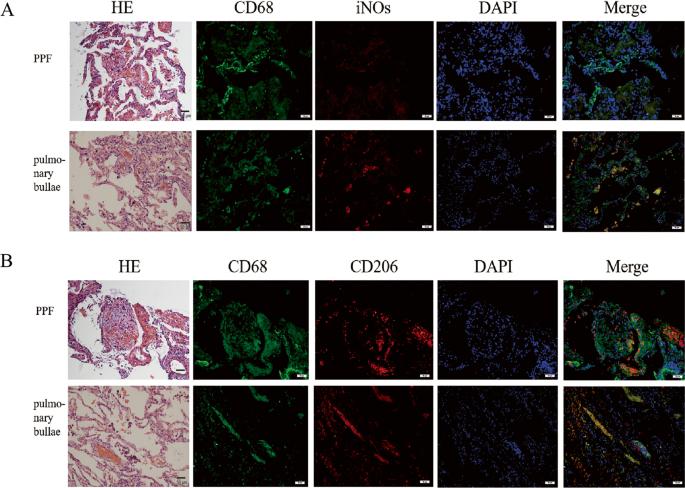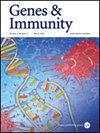αCGRP deficiency aggravates pulmonary fibrosis by activating the PPARγ signaling pathway
IF 5
3区 医学
Q1 GENETICS & HEREDITY
引用次数: 0
Abstract
In order to explore whether αCGRP (Calca) deficiency aggravates pulmonary fibrosis (PF). Clinical data from patients with PF (n = 52) were retrospectively analyzed. Lung tissue from a bleomycin (BLM)-induced rat model was compared with that of Calca-knockout (KO) and wild type (WT) using immunohistochemistry, RNA-seq, and UPLC-MS/MS metabolomic analyses. The results showed that decreased αCGRP expression and activation of the type 2 immune response were detected in patients with PF. In BLM-induced and Calca-KO rats, αCGRP deficiency potentiated apoptosis of AECs and induced M2 macrophages. RNA-seq identified enrichment of pathways involved in nuclear translocation and immune system disorders in Calca-KO rats compared to WT. Mass spectrometry of lung tissue from Calca-KO rats showed abnormal lipid metabolism, including increased levels of LTB4, PDX, 1-HETE. PPAR pathway signaling was significantly induced in both transcriptomic and metabolomic datasets in Calca-KO rats, and immunofluorescence analysis confirmed that the nuclear translocation of PPARγ in BLM-treated and Calca-KO rats was synchronized with STAT6 localization in the cytoplasmic and nuclear fractions. In conclusion, αCGRP is protective against PF, and αCGRP deficiency promotes M2 polarization of macrophages, probably by activating the PPARγ pathway, which leads to activation of the type 2 immune response and accelerates PF development.

αCGRP 缺乏会通过激活 PPARγ 信号通路加剧肺纤维化
为了探讨αCGRP(Calca)缺乏是否会加重肺纤维化(PF)。研究人员对肺纤维化患者(52 人)的临床数据进行了回顾性分析。通过免疫组化、RNA-seq和UPLC-MS/MS代谢组分析,比较了博莱霉素(BLM)诱导的大鼠模型的肺组织与Calca基因敲除(KO)和野生型(WT)的肺组织。结果发现,PF 患者体内的 αCGRP 表达减少,2 型免疫反应被激活。在BLM诱导的大鼠和Calca-KO大鼠中,αCGRP的缺乏增强了AECs的凋亡并诱导了M2巨噬细胞。与 WT 大鼠相比,RNA-seq 发现了 Calca-KO 大鼠核转位和免疫系统紊乱相关通路的富集。Calca-KO大鼠肺组织的质谱分析显示脂质代谢异常,包括LTB4、PDX和1-HETE水平升高。在Calca-KO大鼠的转录组和代谢组数据集中,PPAR通路信号转导被显著诱导,免疫荧光分析证实,在BLM处理的大鼠和Calca-KO大鼠中,PPARγ的核转位与STAT6在细胞质和核部分的定位同步。总之,αCGRP对PF具有保护作用,αCGRP缺乏会促进巨噬细胞的M2极化,可能是通过激活PPARγ通路,从而导致2型免疫反应的激活,加速PF的发展。
本文章由计算机程序翻译,如有差异,请以英文原文为准。
求助全文
约1分钟内获得全文
求助全文
来源期刊

Genes and immunity
医学-免疫学
CiteScore
8.90
自引率
4.00%
发文量
28
审稿时长
6-12 weeks
期刊介绍:
Genes & Immunity emphasizes studies investigating how genetic, genomic and functional variations affect immune cells and the immune system, and associated processes in the regulation of health and disease. It further highlights articles on the transcriptional and posttranslational control of gene products involved in signaling pathways regulating immune cells, and protective and destructive immune responses.
 求助内容:
求助内容: 应助结果提醒方式:
应助结果提醒方式:


